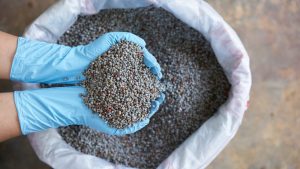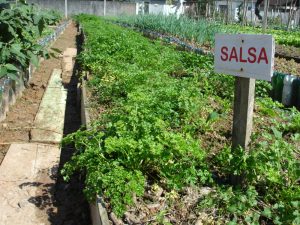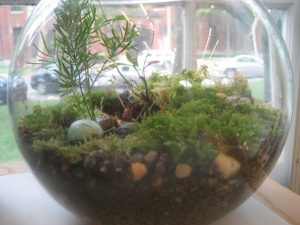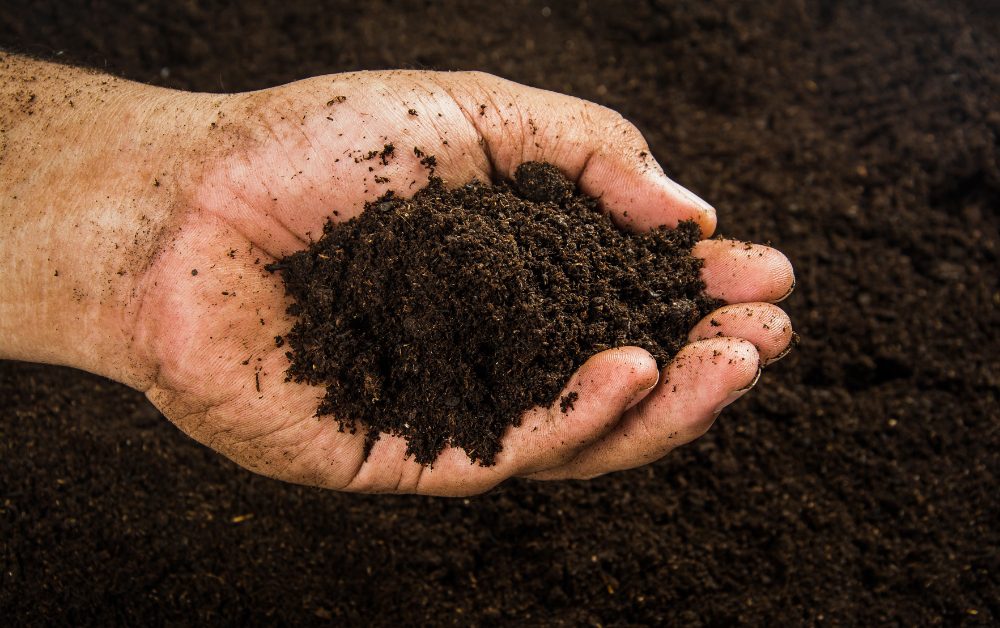
Gardening enthusiasts, get ready to unlock the secret to lush, vibrant gardens – chicken manure! In this extensive guide, explore the remarkable world of chicken manure as a fertilizer, offering a comprehensive roadmap to effective composting.
Say goodbye to chemical fertilizers and say hello to an eco-friendly, nutrient-rich solution. Delve into the world of chicken manure now.
The Hidden Gem in Your Backyard
Contents
Imagine a treasure trove hiding right under your nose – chicken manure, often overlooked but bursting with potential for your garden. Understand why chicken manure is a must-have for composting.
The Nutrient-Rich Treasure
- Nitrogen: Abundant in chicken manure, nitrogen is the powerhouse behind healthy plant growth. It fosters lush greenery, bolsters photosynthesis, and ensures overall plant vitality.
- Phosphorus: Vital for root development, and flower and fruit production, phosphorus supports robust, flourishing plants.
- Potassium: This nutrient enhances plant resilience against diseases, regulates water movement, and contributes to overall vigour.
- Beneficial Microorganisms: Chicken manure teems with microorganisms that accelerate the decomposition process, enriching your compost with life.
- Essential Trace Elements: Chicken manure contains trace elements that provide a well-rounded nutrient package, ensuring comprehensive plant nourishment.
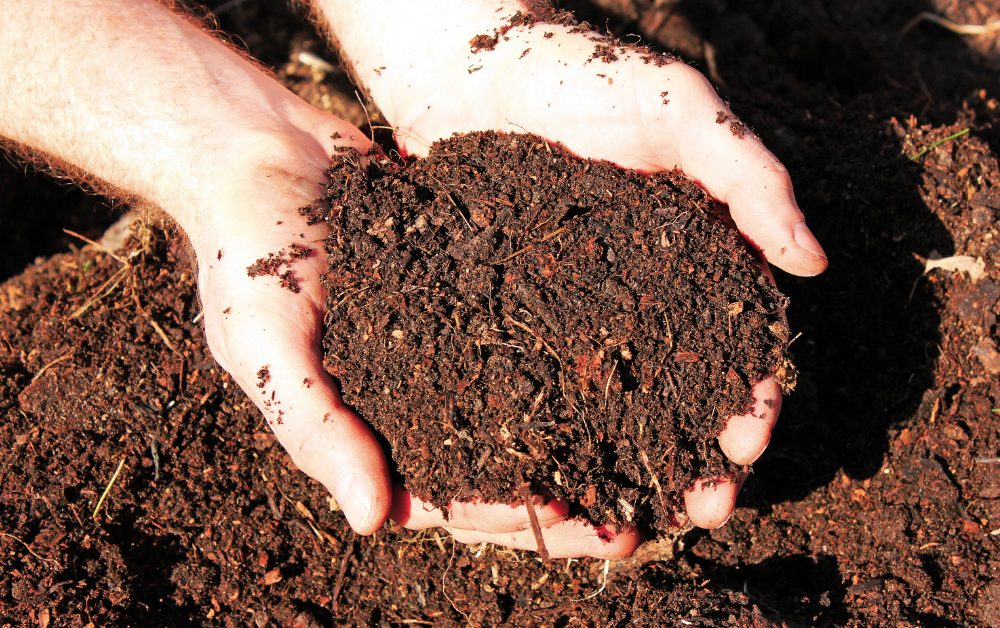
Balance With Green and Brown Materials
For successful composting, the magic lies in finding the balance between green and brown materials. Chicken manure, with its rich nitrogen content, serves as the ‘green’ ingredient. To complement this, introduce ‘brown’ materials such as dried leaves, straws, or wood chips. This balance maintains the ideal carbon-to-nitrogen ratio, facilitating efficient decomposition and yielding nutrient-rich compost.
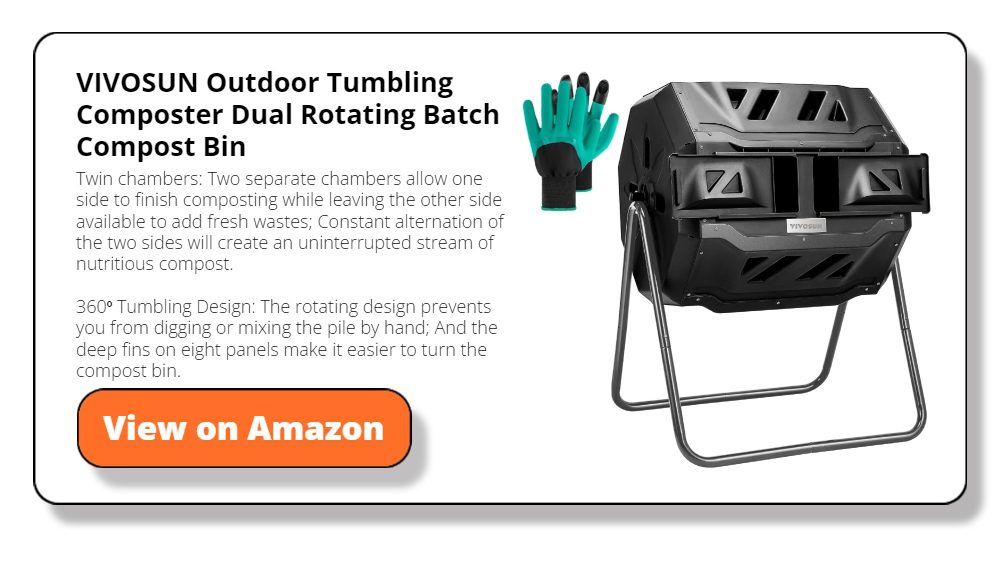
The Art of Composting With Chicken Manure
As you find yourself intrigued by the possibilities of chicken manure, consider immersing yourself in the practice of composting. It goes beyond the simple combination of manure and decomposition. Composting is a well-established discipline, and here are the essential steps you should embrace to achieve successful composting.
Gathering Your Materials
- Chicken Manure: Collect either fresh or aged chicken manure. While fresh manure is potent, it should be composted separately for a few months to prevent burning your plants.
- Brown Materials: Gather dried leaves, straws, or wood chips as ‘brown’ materials. These provide structure and carbon content to the compost pile.
- Water: Composting requires proper moisture levels. Ensure you have access to a water source nearby to maintain the right level of dampness.
Choosing Your Composting Method
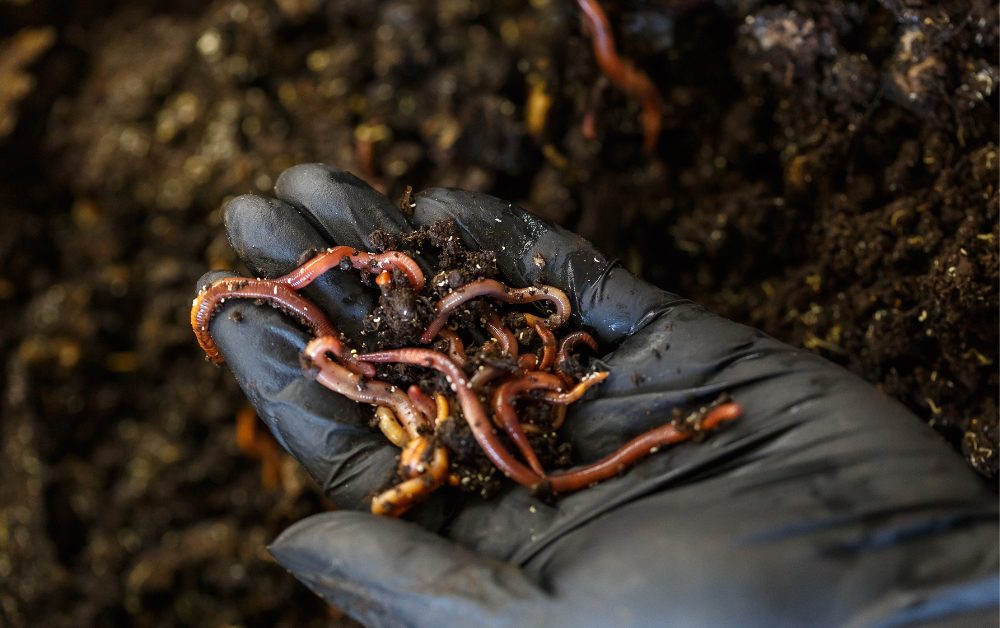
Compost Pile
The simplest method is to create a compost pile. Layer chicken manure with brown materials, maintaining a 2:1 ratio of browns to greens. Regularly turn the pile to aerate it.
When you embark on composting with a traditional open pile, it’s important to recognize that the process is relatively slower. Compost piles usually take about six months to a year to reach full maturity. The duration depends on various variables, such as temperature, moisture content, aeration, and the equilibrium between green components (e.g., chicken manure) and brown materials (such as dried leaves, straws, and wood chips).
To expedite the decomposition process in a compost pile, it’s vital to turn it regularly. This practice introduces oxygen, promoting the breakdown of organic matter. Achieving the ideal carbon-to-nitrogen ratio is equally important, as it optimizes the composting efficiency.
Compost Bin
A compost bin offers controlled conditions, keeping your compost tidy and containing odours. Fill the bin with alternating layers of chicken manure and brown materials. Utilizing a compost bin offers more control over the composting environment, often leading to a faster decomposition process.
In this setup, compost can be ready in approximately four to six months under favourable conditions. The enclosed space of a compost bin maintains more consistent conditions, resulting in a more controlled decomposition process. Regularly turning the compost and diligently managing moisture and temperature levels are key practices for expediting the composting timeline.
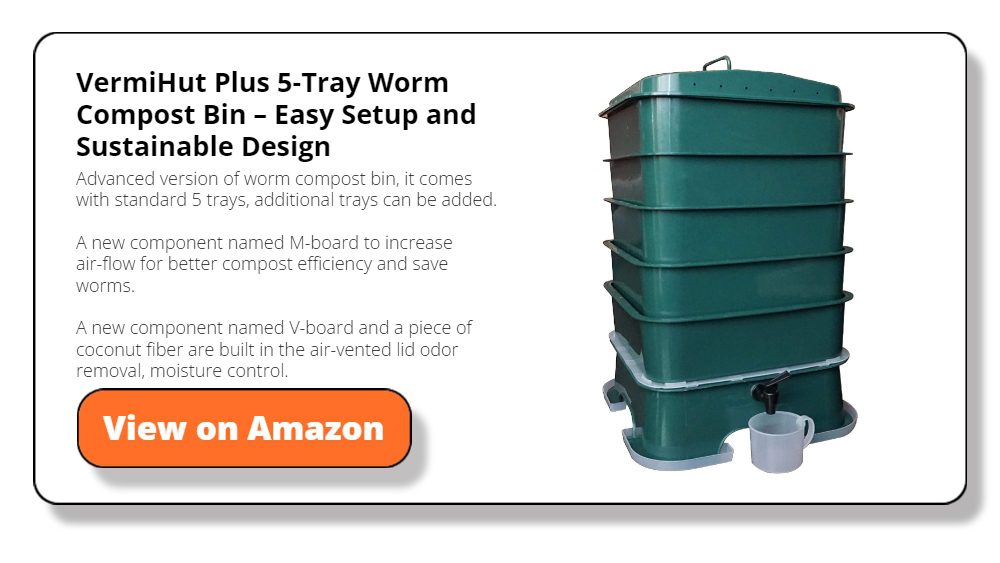
Vermicomposting
Worms can be your composting allies. In a controlled environment like a worm bin, chicken manure transforms into rich vermicompost rapidly.
Vermicomposting, considered Formula 1 of composting methods, accelerates the process significantly. With the assistance of composting worms like red wigglers, chicken manure can transform into nutrient-rich vermicompost in a remarkably short time, usually within two to four months.
The voracious activity of these specialized worms expedites the decomposition of organic matter, including chicken manure. To maintain such a swift pace, it’s essential to provide ideal conditions within the worm bin, including the right temperature, moisture, and appropriate food sources.
Maintaining the Right Conditions
- Aeration: Regularly turning your compost pile introduces oxygen, speeding up decomposition.
- Moisture Monitoring: Maintain a moisture level akin to a wrung-out sponge. Add water if too dry or incorporate more dry materials if it’s too wet.
- Temperature Control: Composting generates heat. Aim for a temperature range of 130-160°F (54-71°C) to break down pathogens and weed seeds. Use a compost thermometer to monitor this.
Time and Patience
Composting is a voyage that demands your patience. The timeframe for your compost to reach full maturity can span from several months to a year, contingent on the chosen method and prevailing conditions. Nevertheless, the rewards are certainly worth the anticipation.
Unveiling the Benefits of Chicken Manure Compost
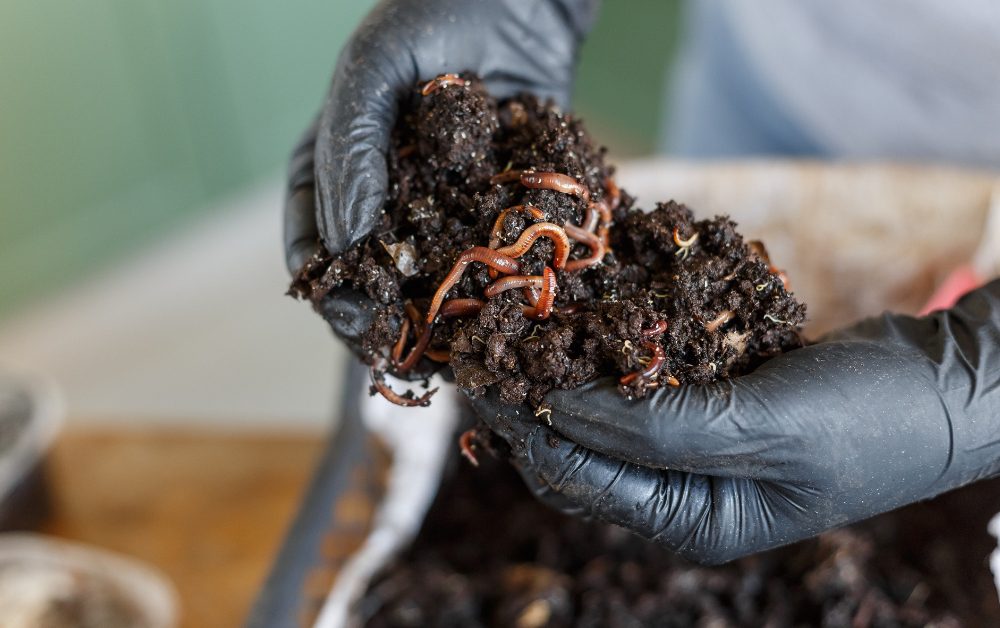
Now that you’ve acquired the skills of effective composting, explore how this ‘black gold’ can revolutionize your garden.
1. Healthier, More Productive Plants
With the right nutrient balance, your plants will thrive. They’ll develop stronger roots, bear larger, healthier flowers and fruits, and offer bountiful harvests. Your garden will be the talk of the neighbourhood.
2. Soil Structure Improvement
The compost enhances soil structure, promoting root penetration and improving access to vital nutrients and water. Better aeration and drainage reduce the risk of root rot and other water-related issues.
3. Pest and Disease Resistance
Potassium, a key component in the compost, fortifies your plants against pests and diseases. Robust, healthy plants naturally resist threats.
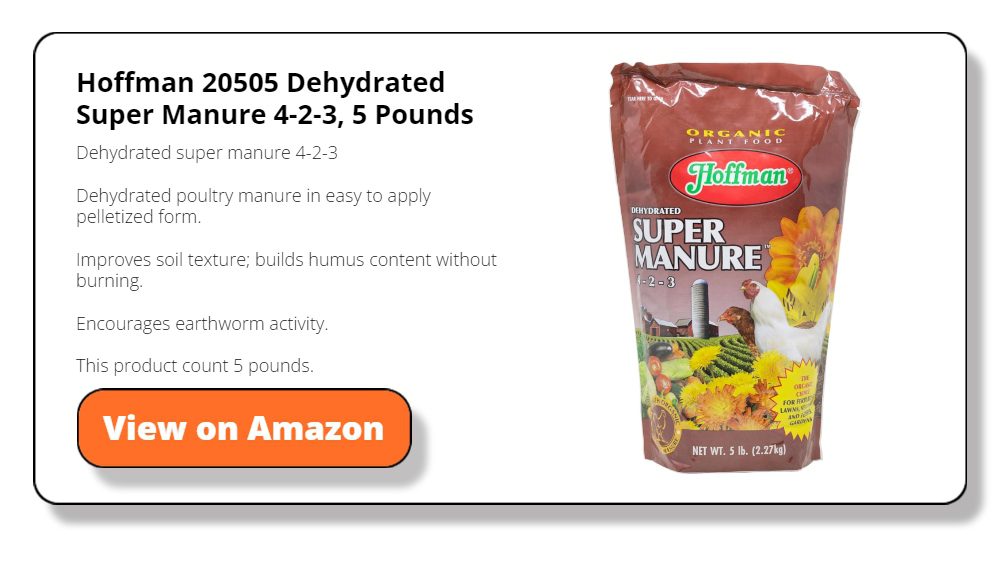
4. Cost-Efficiency
Why purchase expensive synthetic fertilizers when you can rely on homemade chicken manure compost? It not only saves you money but also ensures your plants receive natural, well-balanced nutrition.
5. Sustainability
Incorporating chicken manure compost aligns perfectly with the principles of sustainable gardening. You’re giving back to the earth by returning nutrients to the soil, closing the nutrient loop, and decreasing the need for synthetic chemicals.
The Wrap Up
This guide has revealed the potential of chicken manure as a valuable fertilizer and the science of efficiently composting it. By adhering to these guidelines, you’ll be on the path to turning your garden into a flourishing paradise while also playing your part in creating a more sustainable and environmentally aware world.
Are you ready to make your own chicken manure compost?
Frequently Asked Questions
1. Is chicken manure compost safe for a garden?
Properly composted chicken manure is safe for gardens. Composting eliminates pathogens and reduces the risk of burning plant roots due to excessive nitrogen.
2. Can chicken manure compost be used in organic gardening?
Yes, chicken manure compost is a valuable component of organic gardening, as it provides nutrients without synthetic chemicals.
3. What to avoid when composting chicken manure?
Avoid adding diseased plant material, pet waste, or chemically treated materials to the compost pile. Also, manage the pile to prevent foul odours.

